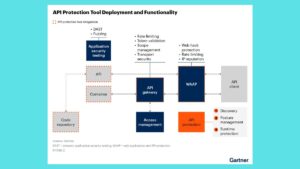The Impact of Remote Work on HR Technology Adoption


The global shift towards remote work, accelerated by recent events, has not only transformed where and how work gets done but has also significantly impacted the adoption and evolution of HR technology. As organizations navigate this new landscape, HR departments are increasingly turning to innovative technologies to support remote teams, foster collaboration, and maintain employee engagement. Here’s a closer look at how remote work is reshaping HR technology adoption and the strategies organizations are employing to adapt.
1. Virtual Collaboration Tools and Platforms
Remote work has highlighted the importance of virtual collaboration tools such as video conferencing, instant messaging, and project management software. HR departments are leveraging these tools to facilitate virtual meetings, conduct interviews, and manage team projects seamlessly across distributed teams. Platforms like Zoom, Microsoft Teams, and Slack have become essential for maintaining communication and collaboration in remote work environments.
2. Cloud-Based HR Systems
Cloud computing has revolutionized HR operations by providing secure, scalable, and accessible solutions that support remote workforces. Cloud-based HR systems enable employees to access HR services, such as payroll, benefits management, and performance reviews, from anywhere with an internet connection. This flexibility is crucial for organizations managing dispersed teams and ensures consistent access to critical HR information and services.
3. Digital Onboarding and Training Programs
The transition to remote work has accelerated the adoption of digital onboarding and training programs. HR departments are deploying virtual onboarding processes that include e-signatures, online orientation sessions, and digital training modules. These programs not only streamline the onboarding experience but also ensure that new hires receive the necessary resources and information to succeed in a remote work environment.
4. Enhanced Employee Engagement and Well-being Initiatives
Maintaining employee engagement and well-being in remote work settings requires proactive HR strategies supported by technology. HR departments are leveraging employee engagement platforms and wellness apps to foster connections, monitor morale, and promote work-life balance among remote employees. Virtual team-building activities, recognition programs, and wellness challenges are examples of initiatives aimed at enhancing remote employee engagement.
5. AI and Analytics for Remote Work Insights
Artificial intelligence and people analytics are playing a crucial role in providing HR teams with insights into remote work dynamics. AI-driven tools can analyze employee data, such as productivity metrics and collaboration patterns, to identify trends and potential challenges in remote work environments. These insights enable HR leaders to make data-driven decisions, optimize workflows, and implement targeted interventions to support remote teams effectively.
6. Cybersecurity and Data Protection
With remote work comes heightened cybersecurity risks and data protection challenges. HR technology adoption includes investing in robust cybersecurity measures, such as secure VPNs, multi-factor authentication, and employee training on cybersecurity best practices. Ensuring the security and privacy of remote work environments is essential for safeguarding sensitive HR data and mitigating cyber threats.
7. Flexibility and Adaptability in HR Policies
Remote work necessitates flexible HR policies that accommodate varying work schedules, time zones, and personal circumstances. HR technology plays a crucial role in enabling flexible work arrangements, tracking remote work hours, and managing leave requests digitally. Adaptive HR policies supported by technology help maintain productivity, support employee well-being, and foster a positive remote work culture.
8. Challenges and Opportunities for HR Leaders
While remote work presents challenges, it also offers opportunities for HR leaders to innovate and optimize HR practices. The shift towards remote work has accelerated digital transformation initiatives, prompting HR departments to reevaluate existing processes and embrace technology-driven solutions that enhance agility, resilience, and employee experience.
Conclusion
Remote work has fundamentally reshaped the landscape of HR technology adoption, driving organizations to rethink how they attract, manage, and develop talent in a virtual environment. By leveraging virtual collaboration tools, cloud-based HR systems, digital onboarding programs, and AI-driven insights, HR departments can support remote teams effectively while fostering a culture of engagement, productivity, and well-being. As remote work continues to evolve, HR technology will play a pivotal role in shaping the future of work and enabling organizations to thrive in a digital-first world.







